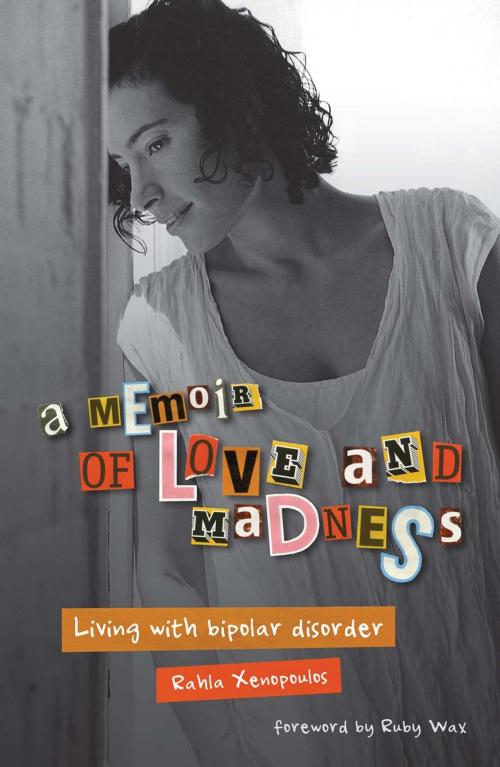| Author: | Rahla Xenopoulos | ISBN: | 9781770221895 |
| Publisher: | Random House Struik | Publication: | March 28, 2011 |
| Imprint: | Zebra Press (Random House Struik) | Language: | English |
| Author: | Rahla Xenopoulos |
| ISBN: | 9781770221895 |
| Publisher: | Random House Struik |
| Publication: | March 28, 2011 |
| Imprint: | Zebra Press (Random House Struik) |
| Language: | English |
In 1992, Rahla Xenopoulos was diagnosed with bipolar disorder. Despite the devastating diagnosis, she sought education on her affliction. Although she found an abundance of literature on various mental illnesses, none of it seemed applicable to her. This situation inspired her to write a book chronicling her ongoing efforts to come to terms with a disease that is, in effect, a life sentence. The book recounts her upbringing in an eccentric, loving Jewish family, her struggle with bulimia, anorexia and self-mutilation, her attempts at suicide, finding true love and, finally, the ‘crazy, utterly unpredictable experience of giving birth to triplets’. This is neither a self-help book nor a medical guide. Reading this book will not cure anyone; bipolar disorder is a chronic illness. But it did help Rahla - as it will countless others - ‘to understand the rhythm in the cacophony of this condition’.
In 1992, Rahla Xenopoulos was diagnosed with bipolar disorder. Despite the devastating diagnosis, she sought education on her affliction. Although she found an abundance of literature on various mental illnesses, none of it seemed applicable to her. This situation inspired her to write a book chronicling her ongoing efforts to come to terms with a disease that is, in effect, a life sentence. The book recounts her upbringing in an eccentric, loving Jewish family, her struggle with bulimia, anorexia and self-mutilation, her attempts at suicide, finding true love and, finally, the ‘crazy, utterly unpredictable experience of giving birth to triplets’. This is neither a self-help book nor a medical guide. Reading this book will not cure anyone; bipolar disorder is a chronic illness. But it did help Rahla - as it will countless others - ‘to understand the rhythm in the cacophony of this condition’.















